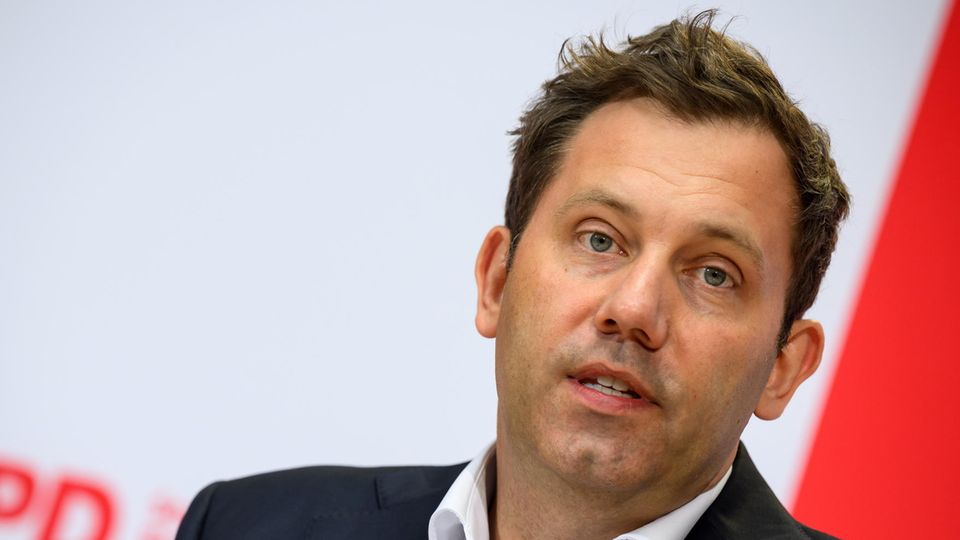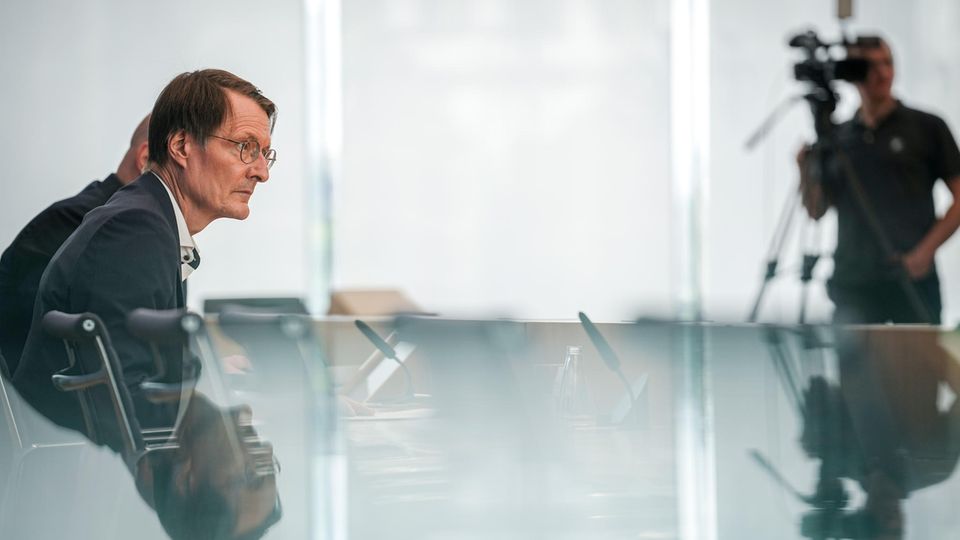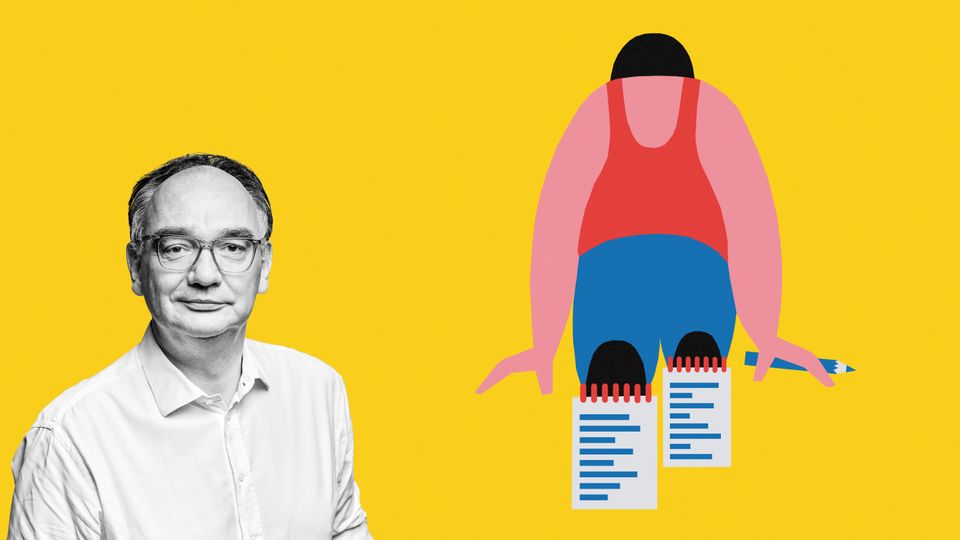Some like this, others like this: there are deep rifts not only in the traffic light coalition, but also within the Greens a conflict is smoldering after the crash over basic child security. What’s up with the party?
Now who is to blame for the mess? Minister of Finance Christian Lindner? Or family minister Lisa Paus? The Green says so, the Liberal so. So far, so normal. traffic light.
Much more surprising is the conflict that is evident within the Greens. After the renewed dispute in the traffic light cabinet over a legislative decision, the second strongest coalition partner is also split – shortly before two important state elections, which are unlikely to be a sure-fire success for the party. That could cause additional turbulence in the governing alliance.
With a so-called management reservation, Family Minister Paus blocked a favorite project of Finance Minister Lindner on Wednesday. With her veto, not only did the Growth Opportunities Act fly off the cabinet’s agenda, the traffic light coalition’s desire to make a name for itself after the summer break with consensus instead of noise was also a thing of the past. The reason for the intervention, apparently: Paus does not want to accept that companies should be relieved of 6.5 billion euros – for basic child security, their favorite project, but only two billion euros are estimated as “note items” for 2025.
This is now causing trouble in the coalition – and unrest within the Greens. Because many in the party can gather behind Paus’ blockade, but by no means all. Some want to get ahead in the matter, attract attention through good governance instead of brawls, others don’t want to swallow even more toads. And finally implement green projects.
Is the old wing logic between “Realos” – the moderate real politicians – and the “Fundis” – the left-wing fundamentalists – returning?
In any case, the opposing lines were also evident at the cabinet meeting on Wednesday. In addition to Paus, Environment Minister Steffi Lemke is said to have vetoed it. The other Green departments – Annalena Baerbock’s Foreign Office and Cem Özdemir’s Ministry of Agriculture – have apparently not registered any general reservations. Economics Minister Robert Habeck had also made it clear that he wanted to pass the draft law.
The matter is particularly unpleasant for Vice Chancellor Habeck: With her intervention, Paus drove the most powerful Greens in the government into parade, who had already negotiated the relief package with Lindner and Chancellor Olaf Scholz (SPD). Last but not least, the Economics Minister must ensure that Germany does not slide into an economic crisis after the energy crisis. Habeck needs results, not blockages.
The Vice Chancellor’s camp is annoyed that the impression is now being created that the Greens are opposed to relief for companies. Internally, there is talk of a catastrophic external effect.
However, many Greens apparently have the impression that their own projects in the traffic light coalition are increasingly falling by the wayside. In the case of basic child security, which large parts of the party describe as “the central socio-political project” of the traffic light coalition, they do not want to allow this under any circumstances – and also accept blockades.
“In recent years, so many promises have been made to alleviate child poverty, so far without success,” said co-group leader Britta Haßelmann to the “Süddeutsche Zeitung”. Every fifth child grows up in poverty, one should not abandon these children and families. It is “good and right to get our joint traffic light project, basic child security, on the way now.” She could also have said: without basic child security, without us. MP Sven-Christian Kindler even said: “Lisa Paus has a lot of support in the parliamentary group for her actions.”
The energy crisis had disciplined the otherwise belligerent Greens. Contrary to its own convictions, the eco-party supported, for example, the extension of the service life for reserve coal-fired power plants, as well as the accelerated expansion of the LNG infrastructure. Despite the unreasonable demands, the internal dispute was limited. That changed at the latest with the fierce debate about extending the lifetime of nuclear power plants, which Scholz finally arbitrated with his authority to issue guidelines. The subsequent conflict over the tightening of EU asylum policy almost tore the Greens apart.
Now there are still seven weeks until the state elections in Hesse, the constant hassle in the traffic lights is melting the polls of the Greens anyway. And Tarek Al-Wazir, the current economics minister in Hesse, will have to explain why the Greens in Berlin are putting the brakes on corporate aid. CDU incumbent Boris Rhein is currently far ahead of the SPD and the Greens, who are in a neck-and-neck race.
State elections are also due in Bavaria in October, and here too the polls predict a difficult situation for the Greens: the CSU is just under 40 percent, its coalition partner ahead of the Free Voters has drawn level with the Greens (14 percent). Did family minister Paus do the Bavarian campaigners a disservice with her blockade?
Johannes Hunger, the Greens’ candidate for the Bavarian state parliament, disagrees. “Lisa Paus made a very important point this week,” he says star. “It would send the wrong signal to pass such an important economic package without tackling child poverty.” That would also go down well with the voters in Bavaria.
After Paus’ veto, he was immediately approached at the information stand in Landshut and said he also received emails and messages from party members in Bavaria. “Of course, the reactions were mixed,” admits Hunger. But: “Many have said to me: It’s good that you’re tough on basic child security.” He doesn’t see that a blocked traffic light in Berlin would damage the election campaign in Bavaria: “A well-managed dispute is part of democracy,” says Hunger.
However, Paus instigated a tangible government crash and left her party in need of explanations. Outcome: uncertain. Your blockade raises expectations that you will not end up empty-handed when it comes to basic child security.
The basic child security scheme, which is intended to combine and expand family policy benefits, is intended to sharpen the party’s socio-political profile (which has suffered a lot after the PR disaster surrounding the heating law). A lot is at stake for Paus and the Greens. The Minister for Family Affairs persistently calls for additional funds for her project, recently estimating the need at up to seven billion euros, while Finance Minister Lindner just as persistently keeps the state coffers closed.
At their closed meeting at the end of August, the traffic light government wants to draw a line under it.
“I am convinced that I have presented a draft law that will ensure that families and children who need help actually receive it,” said Paus on Friday afternoon at a press conference scheduled at short notice. “And that’s why I’m optimistic that we will soon adopt the bill in the cabinet.”
Journalists were not allowed to ask questions.




